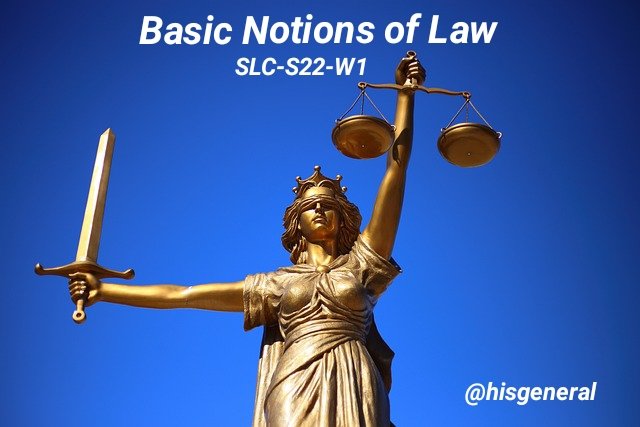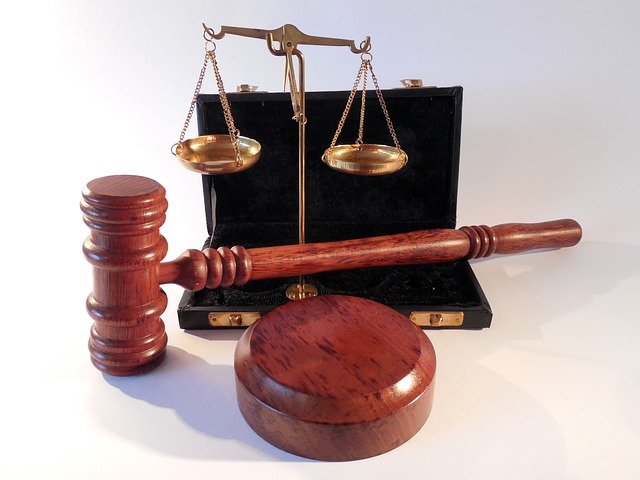No country, society, or group of persons operates without a principle or code of conduct, which can either be written or mutually agreed upon and engraved in the hearts of those involved.
This theme, I guess, came at the right time and is educational as it exposes us to what law is all about as well as areas related to it. Let's see what the law is...
What is Law
 Source Edited Source Edited |
|---|
L
Laws are designed to establish order and stability, safeguard rights and freedoms, promote equity and justice, as well as regulate economic and social activities.
Although laws apply to every individual and organization within a jurisdiction, they offer an explicit support structure for behavior, allowing organizations and individuals to confidently plan and act.
Laws can also be perceived as a set of rules that elucidate everyone's jurisdiction, helping each person know the extent of operation and rights, societal do's and don't's, and penalties associated with violations, all tailored towards the protection of freedoms and rights such as rights to life and property. Laws also aim at the enforcement, compliance, and maintenance of order within a definite political region, society, or cultural setup of a particular organization, state, or county.
For the reason of the class held and this publication, I will be talking about two of the various types of law. These two are quite come to us and they are "objective law" and "subjective law"
Objective Law
This type of law is a legal rule or system that, instead of interpretations, biases, or personal opinions, is based on external conspicuous facts as well as standards. These laws are usually explicit and succinct, thereby providing an equitable and predictable judgment and apply to every individual within a jurisdiction. As the name implies, this law is objective indeed, and this makes its enforcement or application accordant, regular, and dependable.
Example 1: Speed Limit Law
- Objective Law:
A maximum speed law that states, "The maximum speed on highways is 55 miles per hour." - Scenario:
Thompson is driving on the highway and is turned off the road by a police officer for speeding. Thompson's speed was measured by the officer using a radar gun, who ascertained that he was moving at 65 miles per hour. According to the objective law, Thompson is guilty of over-speeding and will be fined accordingly.
Example 2: Tax Law
- Objective Law:
A tax law that states, "Every individual with a yearly income above ₦2,000,000 must pay a 5% tax rate." - Scenario:
Daniel earns a yearly income of ₦5,000,000 and files his tax return. In line with the objective law, Daniel's tax rate is 5%, and he is obligated to pay the corresponding tax amount. The law will objectively be applied by tax authorities, regardless of Daniel's personal opinions or circumstances.
Subjective Law
This law appears to be the opposite of the objective law. It is based on interpretations, personal opinions, values, or biases. This type of law is usually indistinct, open-ended, or relies upon individual points of view; this makes its application not consistent and potentially based on individual discretion or judgment rather than any objective distinction, perhaps even made at random.
Example 1: Unfair Trade Practices Law
- Subjective Law:
A subjective law forbids "deceptive or unfair" business practices without making provision of explicit guidelines on what composes deception or unfairness. - Scenario:
Hisgeneral, an online retailer announced a product as "biodegradable" and "eco-friendly." A rival filed a charge alleging that Hisgeneral's announcement is deceptive and unfair. The court must decide whether Hisgeneral's advertisement is indeed deceptive or unfair, which calls for the law to be subjectively interpreted.
Example 2: Obscenity Law
- Subjective Law:
"Any material that is deemed to be 'obscene' or 'offensive' is prohibited." - Scenario:
Hisgeneral, a bookstore owner, is charged with dispersing obscene materials for the sales of a book that most people regard as offensive. Nevertheless, others may not consider the book obscene, and the decision of the court would ultimately be dependent on the subjective interpretation of the law by the jury.
 Source
SourcePractical case: A citizen is driving a vehicle on the road and disregards the traffic light. Seconds later, he is stopped by a traffic police officer and this citizen claims that he disregarded the traffic light because he was in a hurry to pick up his son and take him to the hospital because he is feeling unwell. Say according to what you have learned, where in the case the Objective Law and the Subjective Law are present.
A. Similar to what I mentioned earlier about exceeding a stipulated speed limit, driving without obedience to the traffic light is a violation of traffic law also considering the fact that it wasn't an ambulance service. This is an objective law.
B. On the other hand, explaining the reason for violating traffic law by disobeying a traffic light is subject to personal perspective, hence a characteristic of subjective law. Consequently, this can be attributed to subjective law.
Example of my county's law
It is a law in my country, specifically in section 34 of our 1999 constitution (as amended), that every individual has a legal or perceived moral right to respect the dignity of his person, and consequently, no person shall be made to undergo degrading or torture or inhuman treatment."
Example of my county's norm
Caring for vulnerable people is a norm in my country, especially the elderly, orphans, and widows. It is expected that family members provide emotional, financial, and physical support to vulnerable relatives.
The community usually, through informal support networks, plays a role in giving support to vulnerable individuals. This norm cuts across cultures, influences social behaviors, and promotes social cohesion.
We can, therefore, observe here the relationship between law and norm as it relates to fundamental rights. Both are tailored towards the protection of dignity and the prevention of exploitation of vulnerable people.
Owning or living with a dog for any reason should be exclusive to persons living alone and not among other occupants. Since there are other occupants in the same compound, living with a dog is prohibited in the building's "coexistence" regulations. It is, therefore, a violation of the norm to live with dogs in his apartment.
On the other hand, he has not renewed his rent and, therefore, is owing 3 months' arrears. This is a violation of law.
Comparative law has to do with the study of similarities and variations between legal systems as well as their institutions, rules, and practices. It involves examining and assessing the similarities and differences between the laws of various countries, judicial systems, or cultures for identification of trends, patterns, as well as optimal practices.
Furthermore, comparative law is geared toward the promotion of a deeper comprehension of the intricacies of legal principles and the role they play in society, as well as to help bring about the development of more efficient and equitable legal systems.
There are so many ways in which my understanding of comparative law can be beneficial to me:
Comparative law can acquaint me with areas in which a country's laws might be obsolete or inadequate and provide me with insights into how other legal boundaries have handled similar issues.
Comparative law is necessary for businesses that operate in manifold jurisdictions, as it can be helpful for navigating varied legal systems and complying with differing regulations. This is indeed very beneficial for promoting international trade and investment.
Comparative law can assist me with identifying optimal practices for the protection of human rights and the promotion of the rule of law. I can through examining how various jurisdictions handle issues such as due process, equality, and justice, address certain legal issues in another country.
Comparative law encourages cross-cultural comprehension and cooperation by laying more emphasis on the nonuniformity of legal systems and traditions. This can help build connections between nations and bring about international cooperation on issues such as migration, which will enable me to relate well while in another country.
My invitation goes to @entity01, @vickyson, and @triple-a
Thanks
X promotion link
Downvoting a post can decrease pending rewards and make it less visible. Common reasons:
Submit